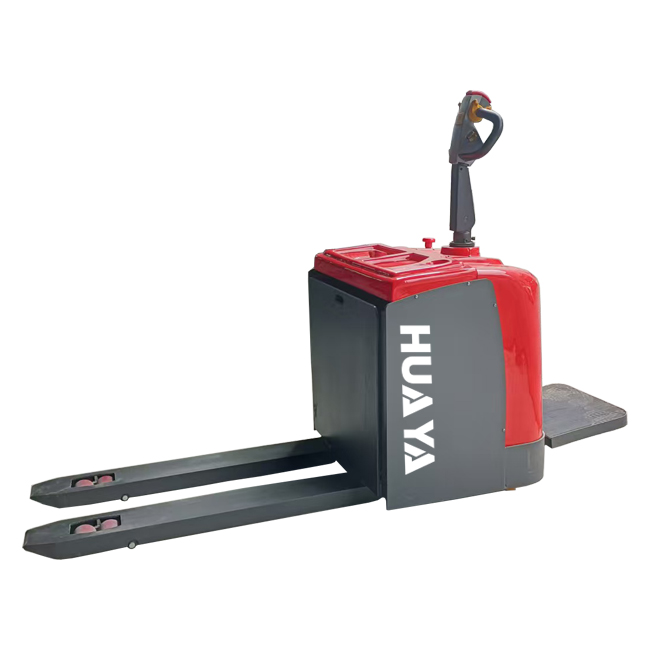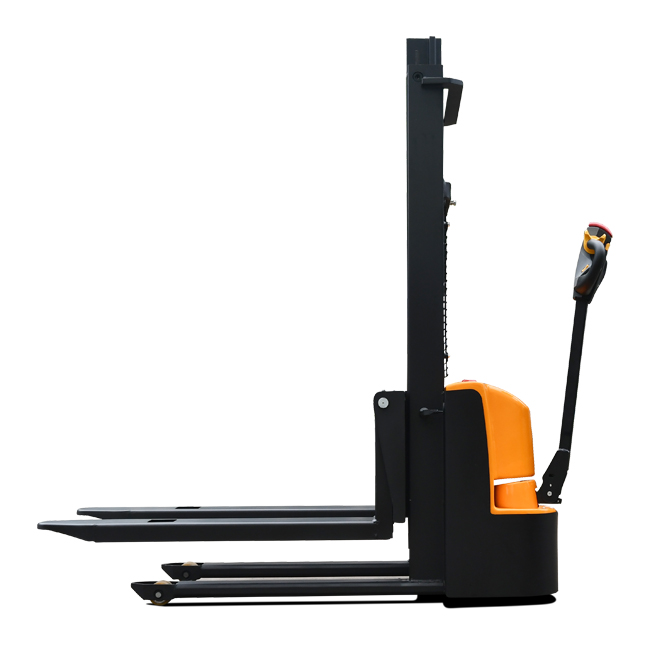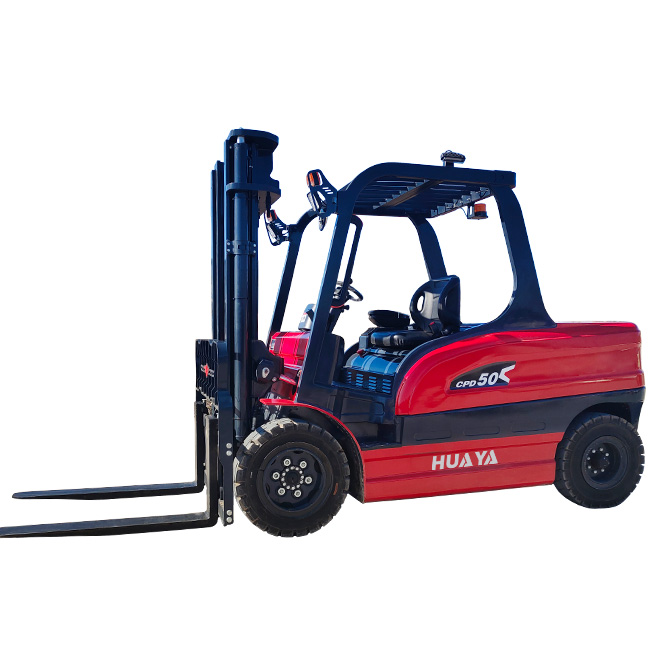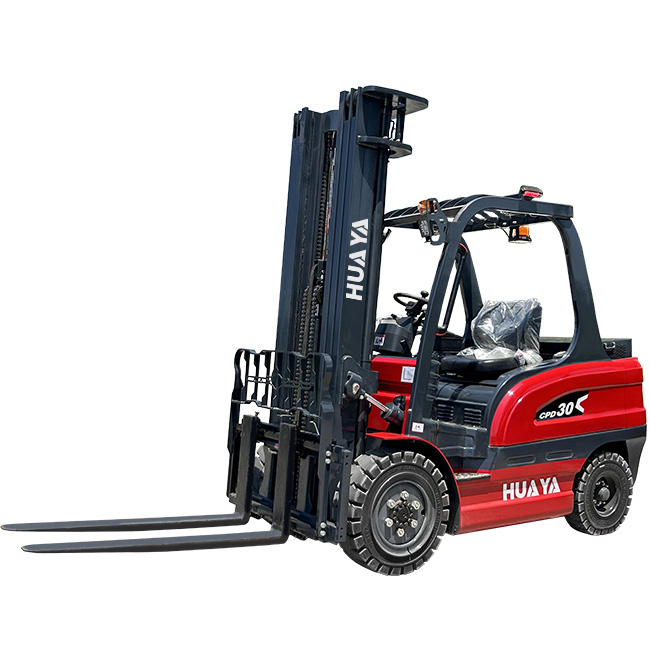What type of battery does a pallet truck use?
05 Sep 2025
When it comes to moving heavy loads around warehouses, factories, or distribution centers, pallet trucks are the unsung heroes of efficiency. But have you ever paused to think about what powers these essential machines? That’s right—batteries. Understanding the type of battery a pallet truck uses is more than just trivia; it’s crucial for maintenance, efficiency, and even cost savings. Let’s break it down in a way that makes sense, even if you’re not a warehouse wizard.
Understanding Pallet Truck Batteries
At the heart of every electric pallet truck is its battery, the source of all its lifting and moving power. Most electric pallet trucks don’t rely on gas or diesel—they run on rechargeable batteries that store energy to power the hydraulic pump, motor, and other electrical systems. Knowing the type of battery isn’t just a detail for warehouse managers; it affects how long your pallet truck runs, how quickly it can be charged, and even how much it costs over time.
Lead-Acid Batteries: The Classic Choice
If you’ve been around warehouses long enough, you’ve probably seen a pallet truck powered by a lead-acid battery. These are the traditional workhorses of the warehouse world.
Reliability: Lead-acid batteries have been around for decades, and for good reason. They’re dependable, easy to maintain, and fairly affordable.
Maintenance: They do require regular watering and cleaning to prevent sulfation and other issues. Think of it like keeping your plants watered—you ignore it, and things go south fast.
Runtime and Charging: Lead-acid batteries usually offer several hours of run time but take longer to charge than newer battery types. They’re better suited for warehouses with predictable shifts and downtime for charging.
In short, lead-acid batteries are great for traditional warehouse setups where cost and reliability outweigh the need for ultra-fast charging or super lightweight solutions.
Lithium-Ion Batteries: The Modern Upgrade
Now, if you’ve stepped into a modern warehouse, you’ve likely noticed more pallet trucks running on lithium-ion batteries. These are the sleek, high-tech siblings of lead-acid batteries.
Efficiency: Lithium-ion batteries can charge much faster, sometimes in just a couple of hours, and they maintain a consistent level of power throughout their charge. No more gradual slowdown halfway through the shift.
Maintenance-Free: Unlike lead-acid batteries, lithium-ion types don’t need watering or regular acid checks. This translates to lower maintenance time and fewer headaches for operators.
Longevity and Weight: They’re lighter and typically last longer than lead-acid batteries, which means less frequent replacements and easier handling of the pallet truck itself.
Lithium-ion batteries are perfect for high-demand environments, like large distribution centers, where downtime costs money, and efficiency is everything.
Comparing Lead-Acid and Lithium-Ion Batteries
So how do you know which battery type is right for your pallet truck? Here’s a quick rundown:
| Feature | Lead-Acid Battery | Lithium-Ion Battery |
| Initial Cost | Lower | Higher |
| Maintenance | High (watering, cleaning) | Low (maintenance-free) |
| Charging Time | Long | Short |
| Lifespan | Moderate | Long |
| Weight | Heavy | Light |
| Power Consistency | Decreases during shift | Consistent |
In short, lead-acid is the budget-friendly option if your operations can accommodate longer charging and maintenance. Lithium-ion is the efficiency king, ideal for modern, fast-paced warehouses.
How to Choose the Right Battery
Choosing the right battery for your pallet truck depends on several factors:
Shift Duration and Usage: How long is your team on the floor, and how many hours does your pallet truck operate each day? For multiple shifts, lithium-ion might be the better choice.
Maintenance Capacity: Do you have staff to manage battery watering and cleaning, or would a maintenance-free option save you time and headaches?
Initial Budget vs. Long-Term Cost: Lead-acid batteries are cheaper upfront, but lithium-ion batteries often save money in the long run with lower maintenance and longer lifespan.
Charging Infrastructure: Do you have charging stations available for rapid lithium-ion charging, or is slower, overnight charging acceptable?
By evaluating these factors, you can pick the battery that keeps your pallet trucks moving without interruptions.
Extending the Life of Your Pallet Truck Battery
No matter which battery type you choose, proper care will extend its life and keep your operations running smoothly. Here are some tips:
Regular Inspection: Check for corrosion, leaks, or damage. Early detection can prevent costly failures.
Proper Charging Practices: Avoid deep discharges if possible. Lead-acid batteries should be charged before they’re fully drained, while lithium-ion batteries tolerate deeper discharges better.
Clean Terminals and Connections: A clean connection ensures efficient power transfer and reduces heat buildup.
Temperature Management: Batteries perform best in moderate temperatures. Extreme heat or cold can reduce efficiency and lifespan.
Following these practices can save you thousands in replacement costs over the years.
Conclusion: Powering Your Pallet Truck Right
At the end of the day, the type of battery your pallet truck uses is more than just a technical specification—it’s a key factor in operational efficiency. Whether you opt for the traditional reliability of lead-acid batteries or the fast, maintenance-free performance of lithium-ion, understanding your battery needs ensures that your warehouse moves smoothly, without unexpected downtime.
From shift planning to maintenance routines, knowing what powers your pallet truck gives you the edge to run a smarter, more efficient operation. And in the fast-paced world of warehouses, every minute counts.




